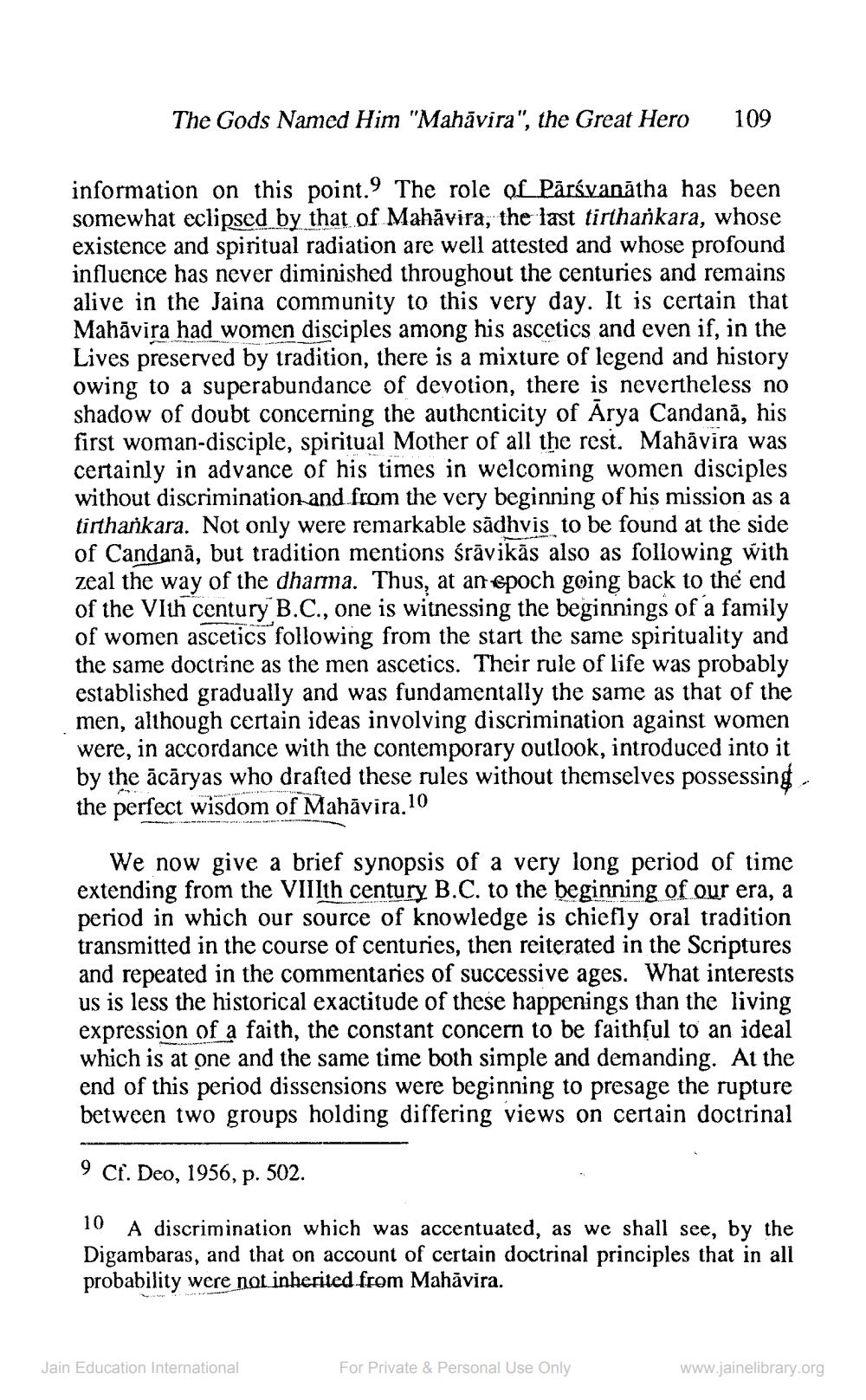________________
The Gods Named Him "Mahāvira", the Great Hero
109
information on this point. The role of Pārsvanātha has been somewhat eclipsed by that of Mahāvira, the last tirtharkara, whose existence and spiritual radiation are well attested and whose profound influence has never diminished throughout the centuries and remains alive in the Jaina community to this very day. It is certain that Mahāvira had women disciples among his ascetics and even if, in the Lives preserved by tradition, there is a mixture of legend and history owing to a superabundance of devotion, there is nevertheless no shadow of doubt concerning the authenticity of Arya Candanā, his first woman-disciple, spiritual Mother of all the rest. Mahāvira was certainly in advance of his times in welcoming women disciples without discrimination and from the very beginning of his mission as a tirthankara. Not only were remarkable sādhvis to be found at the side oi Candana, but tradition mentions sravikäs also as following with zeal the way of the dharma. Thus, at an epoch going back to the end of the Vlth century B.C., one is witnessing the beginnings of a family of women ascetics following from the start the same spirituality and the same doctrine as the men ascetics. Their rule of life was probably established gradually and was fundamentally the same as that of the men, although certain ideas involving discrimination against women were, in accordance with the contemporary outlook, introduced into it by the ācāryas who drafted these rules without themselves possessing the perfect wisdom of Mahāvira. 10
We now give a brief synopsis of a very long period of time extending from the Villth century B.C. to the beginning of our era, a period in which our source of knowledge is chiefly oral tradition transmitted in the course of centuries, then reiterated in the Scriptures and repeated in the commentaries of successive ages. What interests us is less the historical exactitude of these happenings than the living expression of a faith, the constant concern to be faithful to an ideal which is at one and the same time both simple and demanding. At the end of this period dissensions were beginning to presage the rupture between two groups holding differing views on certain doctrinal
9 Cf. Deo, 1956, p. 502.
10 A discrimination which was accentuated, as we shall see, by the Digambaras, and that on account of certain doctrinal principles that in all probability were not inherited from Mahāvira.
Jain Education International
For Private & Personal Use Only
www.jainelibrary.org




